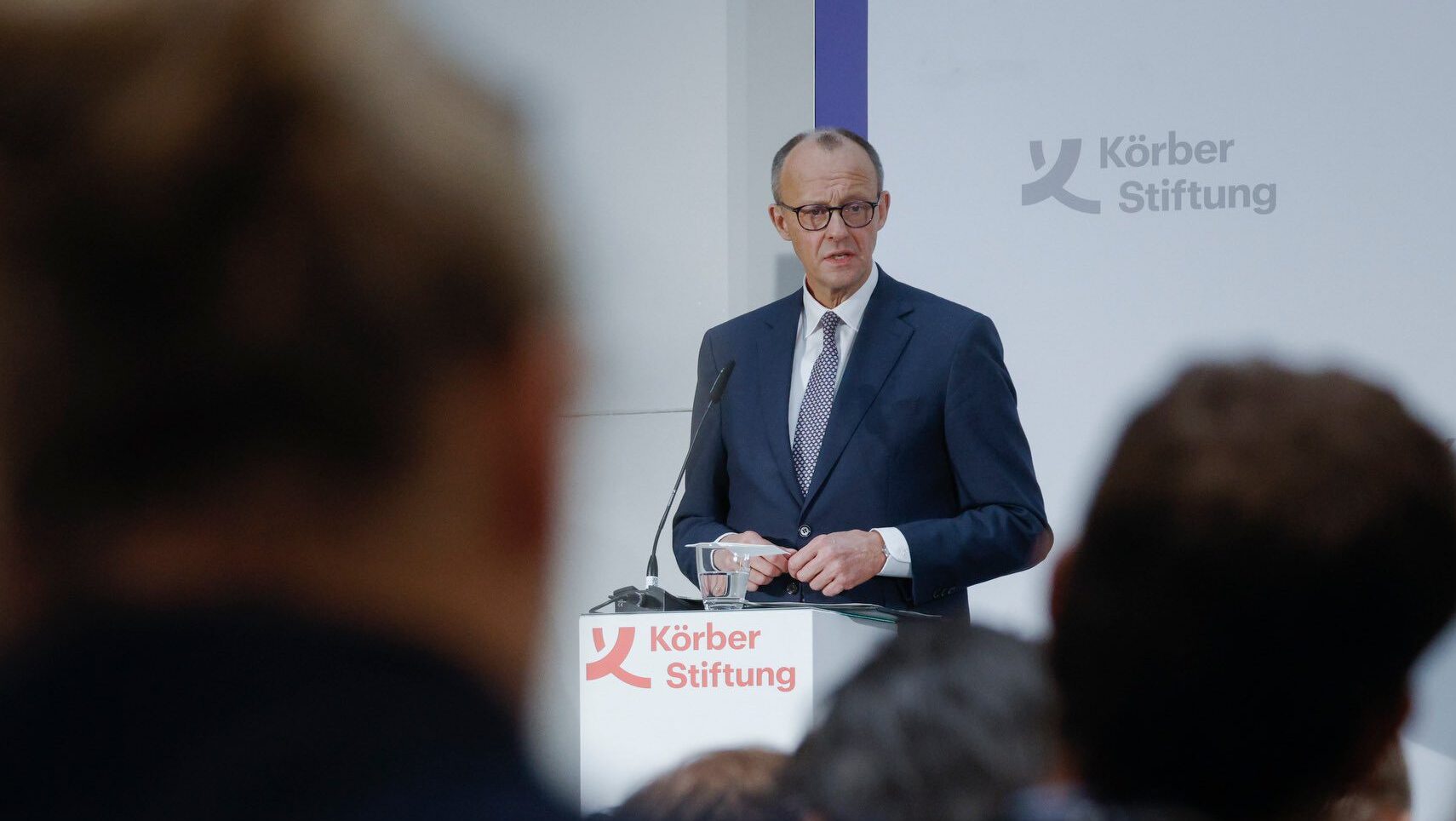
Friedrich Merz
Photo: @_Friedrich Merz on X, 23 January 2025
The murder of a 2-year-old toddler and a 41-year-old man in the Bavarian city of Aschaffenburg by an Afghan migrant has reignited the debate on the failed immigration policies of recent German governments.
The fact that the perpetrator, 28-year-old Enamullah O. should have been deported long ago as a failed asylum seeker, and should have been in prison for a host of violent criminal acts, sparked outrage in political circles.
Friedrich Merz, the leader of the centre-right opposition CDU party, which is expected to win the national elections in less than a month’s time, said his future government would put in place a de facto entry ban for all illegal immigrants, as well as genuine refugees who do not possess valid entry documents.
„Es wird ein faktisches Einreiseverbot in die Bundesrepublik Deutschland für alle geben, die nicht über gültige Einreisedokumente verfügen oder die von der europäischen Freizügigkeit Gebrauch machen.“ ™ #Aschaffenburg
— Friedrich Merz (@_FriedrichMerz) January 23, 2025
He vowed to place permanent controls at all German borders on day one of his chancellorship, adding that the EU’s current asylum system, known as the Dublin rules, is “recognisably dysfunctional.” He stressed that “Germany must exercise its right to the primacy of national law.”
“We are faced with the ruins of a ten-year-long misguided asylum and immigration policy in Germany,” Friedrich Merz said, adding that he is “no longer willing to accept these conditions in Germany.”
The attacker had entered the EU via Bulgaria, where his asylum application should have been processed. Yet he moved on and entered Germany in 2022, where his request for asylum was rejected. He later agreed to leave the country but never did.
The attack in Aschaffenburg comes as Germany is grappling with a spate of knife crimes committed by mostly Afghan and Syrian migrants. Last year, three festivalgoers were killed by a 26-year-old Syrian failed asylum seeker in Solingen, and a policeman was murdered by a 25-year-old Afghan failed asylum seeker in Mannheim.
Despite rhetoric by both the CDU-led government (under Merkel) and the current Social Democrat-led cabinet to tighten asylum rules and deport criminals, not much has been done, and Merz’s promises to be tough on immigration should be listened to with caution. Not to mention, the CDU is unlikely to win enough votes to secure a majority in parliament, meaning it will have to form a government with either the Social Democrats or the Greens, making the prospect of a tougher policy unlikely.
One party that has offered to work together with the CDU on the issue is the right-wing Alternative für Deutschland (AfD) which is polling in second place.
In a letter to Friedrich Merz, the co-leader of the party, Alice Weidel, said that his proposals are similar to those that the AfD has been suggesting for years: strict border controls, the rejection of illegal migrants at the border, and the deportations and remigration of those who have no right to be in Germany.
“Let us take the necessary decisions without further hesitation to put into practice what the citizens now rightly expect from their politicians,” she wrote, urging Merz to propose the policy in parliament next week, something the AfD will gladly support.
Mein offener Brief an Friedrich Merz im Wortlaut:
— Alice Weidel (@Alice_Weidel) January 23, 2025
"Sehr geehrter Herr Merz,
Die jüngsten Messermorde und Terrorakte von Mannheim, Solingen, Magdeburg und zuletzt Aschaffenburg haben die Zerrüttung der inneren Sicherheit in unserem Land als Folge der fast ein Jahrzehnt… pic.twitter.com/17uxZU7osF
Instead of cooperating with the AfD, which would be its natural ally on migration, the CDU has been an accomplice of the left-wing parties in maintaining a cordon sanitaire around AfD. This was made evident by the party’s parliamentary group leader, Thorsten Frei, who rejected Weidel’s “offer of poison.”
However, media reports suggest that Merz himself is willing to accept the votes of the AfD for a motion he is preparing to introduce in parliament. After an internal meeting of CDU party leaders late on Thursday, January 23rd, Merz is alleged to have said that he is “completely indifferent to who goes along with this path politically.”
